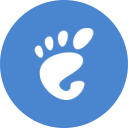It's official! Registrations for #GUADEC2025 are now open! https://events.gnome.org/event/259/
24-29 July
Università degli Studi di Brescia
Psst! We're still looking for sponsors
It's official! Registrations for #GUADEC2025 are now open! https://events.gnome.org/event/259/
24-29 July
Università degli Studi di Brescia
Psst! We're still looking for sponsors


 @cassidy@blaede.family
@cassidy@blaede.familyI just submitted two talks for GUADEC before this weekend’s deadline; have you submitted yours? You are running out of time!
Seriously, go do it now! A slightly rushed abstract is better than not submitting it at all.

Are you doing something cool with GTK or the GNOME application development platform? Do you want to talk about it in front of the GNOME community? Then you have until March 16 to submit a talk proposal for GUADEC 2025!

I just submitted a talk proposal for #GUADEC 2025 in Brescia, Italy, from July 24-29.
I'm looking forward to seeing my @gnome people there!
If you plan to present, don't forget that the call for abstracts ends this weekend! Hurry up! https://events.gnome.org/event/259/abstracts/#submit-abstract

@KekunPlazas @garrett @cassidy @federicomena @ebassi
If there is no foot in the logo, and if we're leaning into the pointy hats aesthetic instead, I believe we will need to uphold the brand through this specific dress code at conferences:
@morph @pinjontall @adrianyyy @elly
you had to be at Berlin #GUADEC xD
@tbernard maybe we should make a webshop xD
WordPress.com has recently allowed blogs to Enter the Fediverse [wordpress.com], so you can now follow my writings on Mastodon and other places. Click the new ‘Follow’ button in the sidebar, or paste this succinct Fediverse address:
@samthursfield.wordpress.com@samthursfield.wordpress.com.
This blog is more serious writing about technology, you can also follow @vladimirchicken@mastodon.art which is mostly music, art and needless complaints over things I can’t change.
I was lucky enough to attend GNOME’s 2024 conference in Denver. I had a great time, saw many people I haven’t seen this decade, and it was also my first trip into the USA beyond the easternmost parts of the east coast.
It was a unique edition of the conference, we were about 50 people as you can see in the group photo [www.flickr.com], with another 30-40 people in Berlin. I posted a thread already on what we learned about hybrid conferences [discourse.gnome.org].
I have a more thoughts about this year’s event which are complex and contradictory and better discussed face to face. Sometimes you have to hold multiple conflicting thoughts in your head at once. I’ve written some of these thoughts down below.
The world is huge … like really big. Denver is a full EIGHT timezones away from Berlin, right? If you get up at 9AM in Denver then it’s already 5PM in Berlin, and it’ll be 6PM by the time you’ve brushed your teeth. How can you unite two groups of people across such a big time gap?
Having tried it, my feeling that a “federated” event split across different locations at the same time is not a replacement for a single, global in-person event. The community splits according to the geographical distribution of its members, roughly following Conway’s Law [en.wikipedia.org].
Travelling back from Denver to Santiago de Compostela took me about 50 hours in the end. It was supposed to be less but there was a 5 hour delay in Denver due to a shortage of air traffic controllers in Newark, which led to missing a connection to Madrid, the next day some bad weather added two more hours of delay, and then the trains from Madrid were largely full so I couldn’t get back home until early evening.
I kind of enjoy travel chaos (and my feeling is that as a society, we’ll only reduce our dependence on air travel if and when it becomes frustratingly inconvenient to use).
I feel lucky that I don’t have to do this kind of trip very frequently. I have more appreciation now for the significant effort people go through to get to events in Europe.
Multiple people in Denver told me they share the feeling I mentioned last month, that many Free Software communities are Euro-centric [samthursfield.wordpress.com].
Some benefits to holding a GUADEC in the USA. Inspirational keynotes by local speakers, both Ryan Sipes’ story of Thunderbird [lwn.net], and Stephanie Taylor who is the force behind Google Summer of Code. Meeting contributors who don’t travel to Europe. Media coverage of the GNOME Foundation AGM [lwn.net], in a good way.
I think we missed an opportunity to make more of the event. Involving “the local community” in a summer event is always tricky, as during the summer holidays, “casual” attendees such as students and hobbyists are mostly on holiday. They aren’t usually looking for new software conferences they might attend. That said, GNOME would definitely would benefit from more hands focused on communication outside the project, what we often call “marketing” and “engagement”. It’s a difficult and often thankless task and we have to pay someone to do it. (With all the endless money we have, of course).
I did mention the thing about multiple conflicting ideas at once, right?
Let’s not pretend that a video conference or a hybrid BOF is the same as an in-person meetup. Once you’ve sung karaoke with someone, or explored Meow Wolf [mastodon.art], or camped in the desert in Utah together, your relationship is richer than when you only interacted via Gitlab pull requests and BigBlueButton. You have more empathy and you can resolve conflicts better.
[samthursfield.wordpress.com][Let’s keep exploring new ways to collaborate. Regional events and hybrid events. And accept that these will form bubbles. If you live near members of the GNOME design team and meet in-person with them, you’re going to be able to influence GNOME’s design, more easily than if you live on a continent such as Africa where (to my knowledge) you can’t meet any existing design team members without leaving your continent. If you have a friend who maintains Nautilus it’s going to be easier to get up to speed with Nautilus development yourself, compared to if you’re starting from scratch and you live in a timezone that’s 10 hours offset from Europe.
We want to rethink technical governance in GNOME, which currently somewhat resembles the 15th century Feudal system. (See also, Tobi’s less flippant explanation [blogs.gnome.org] of how decisions are made). Let’s keep geography in mind when we discuss this. And let’s also think how we can balance out the implicit advantage you get for being based in a certain place, and how we can grow local communities in places that don’t currently have them. I suspect this effort will need to be larger than just the GNOME project, and we can’t be the only community thinking about this stuff.
The USA is just as crazy as you imagine from its TV output. I was ready for beautiful scenery, long car journeys, no pavements, icy air conditioning, unhealthy food and franchises inside of franchises inside of franchises. I was genuinely surprised how hot it gets everywhere — even during my unwanted stopover in Newark the weather was 35° humid heat. And I wasn’t ready for disposable plates, cups and cutlery at every hotel breakfast. I’ve stayed in very cheap and very expensive hotels in many places, and all of them manage to wash and reuse the plates.
[samthursfield.wordpress.com][I want to see the single location, in-person GUADEC continuing while it’s still possible to do it. Count how many plane tickets were bought this year to attend GNOME events, and compare it to the number of flights taken just by Elon Musk’s private jet [mastodon.social]. It’s great that we avoided a few dozen plane tickets compared to last year but I’m yet to see a noticeable impact on the airline industry; while the impact on the GNOME project of splitting the community into two physical locations was very noticeable indeed.
We should alternate in-person GUADEC with more radically decentralized events, under a different name. We need to continue developing those as well. Like it or not there are big changes coming in society as the world gets increasingly hot. Tobi outlined all this very well in 2022 [blogs.gnome.org]. Nobody knows exactly what will happen of course, but you can expect that building resilience to change will be worthwhile, to put it very mildly. The key is for this to be something positive rather than a negative. The creation of something new rather than the loss of something we fondly remember. I mean, you can’t claim “GUADEC” is a particularly great name
It’s easy to write about this stuff in a blog post of course, harder to put into practice, and actually it wasn’t even easy to write…. this has taken me three hours.
I was going to write more stuff here but it turns out I had a lot to say about GNOME this month. At FOSDEM 2024, which I could easily attend in-person because I’m European, I saw a great talk by Luca from Fairphone [fosdem.org], and decided my next phone would be a Fairphone 5. And I just got one. More on that next month, I guess.
https://samthursfield.wordpress.com/2024/08/15/status-update-15-08-2024/
talked to @gnome Shell on Mobile main developer @verdre, who told us some crazy stories:
* How GNOME Shell on Mobile got started as @PrototypeFund project
* Relation to Phosh
* Enabling USB host mode on OP6 while hanging out in a bar in Berlin
* Running SailfishOS Aliendalvik on other Linux Mobile distros
* Finding an important security vulnerability in Apple's AirPods
* Mini GUADEC in Berlin
https://cast.postmarketos.org/episode/42-Interview-verdre-GNOME-Shell-on-Mobile/
I attended GUADEC 2024 [guadec.org] last month in Denver, Colorado. I thought I’d write about some of the highlights for me.
It was definitely the smallest GUADEC I’ve been to, and it was unusual in some other ways too, such as having several hybrid presentations, with remote and in-person presenters sharing the stage. That took some adjusting, but it worked well, even if I missed some of the energy of past events. (I shared some thoughts about hybrid GUADEC [discourse.gnome.org] on a Discourse thread).
I felt this GUADEC was really defined by the keynotes. They were great!
First, we had Ryan Stipes from Thunderbird telling us all about Thunderbird’s journey from a somewhat neglected but well-loved side project and on to a thriving self-funded community project: Thunderbird, The Death and Rebirth of an OSS Project [events.gnome.org] (YouTube [youtu.be]). He had a lot to say about the value of metrics to measure the impact of certain features and target platforms, which really resonated with people. (It is interesting to note, for instance, there appear to be more Thunderbird users [stats.thunderbird.net] using Windows 8.1 than Linux). He also had a lot to say about the success Thunderbird had just being direct and asking users for money.
Much of this success comes from Thunderbird doing a good job telling its own story. People clearly understand what Thunderbird is doing for them. And there was plenty of talk [cosocial.ca] for the next few days: what does it mean for GNOME to own its story?
I also really enjoyed Stephanie Taylor’s keynote, all about Google Summer of Code (which started 20 years ago now!): Google Summer of Code 20 years of OSS Mentorship [events.gnome.org] (YouTube [youtu.be]). It just made me super happy as a GSoC alumni (one of thousands!) to see that program continuing to do so much good, and how much mentorship in open source has grown over the years.
Scott Jenson’s presentation, How can GNOME explore bigger concepts? [events.gnome.org] (YouTube [youtu.be]), is another really important watch. Scott’s advice about breaking free from traps like constraint thinking really resonated with me, especially his suggestion to, at first, treat the software like it is magic and see where that leads.
That approach reminds me of how software improves in implementation, as well. It is natural for a codebase to start off with a whole bunch of “do magic” stub functions, then slowly morph into a chaotic mess until finally it turns into something that actually might just work. And getting to that last step usually involves deleting a lot of code, after it turns out you never needed all that much magic. But you have to be patient with the chaos to get there. You have to believe in it.
[Speaking of magic, there is so much around GNOME that is exciting right now, so I spent some time just being excited about things.
Much of this work is being helped along with the Sovereign Tech Fund [www.sovereigntechfund.de]. This is the GUADEC where a lot of that is up for show, and I think it’s amazing to see so many quiet but high impact projects finally getting the attention (and funding) they deserve.
Outside of the event, it was great hanging out around Denver with all sorts of GNOME folks. I loved how many restaurants were perfectly happy to accommodate giant mobs of people. We saw huge mountains, the Colorado Rockies winning a baseball game, surprisingly good karaoke, and some very unique bars. On the last day, a large contingent of us headed to Meow Wolf [mastodon.blaede.family], which was just a ridiculously fun way to spend a few hours. It reminded me of a point and click adventure game in the style of Myst and Riven, in all the best ways.
I was also suitably impressed by the 35 minute walk from where I was staying, around Empower Field, over the South Platte River, under some giant highway [dylanmc.ca] … which was actually entirely pleasant, for North America. This part of Denver has plenty of pedestrian bridges, which are both nice to walk along and really helpful to guide pedestrians through certain areas, so for me the obvious walking routes were completely different from (and as efficient as) the obvious driving routes.
[The GUADEC dinner was, for me, the ideal GUADEC dinner. It was right there at the venue, at the same brewery people had been going to every day – but this time with free tacos! I truly appreciated the consistency there, for Denver has good beer and good tacos. I also appreciated that we were set up both inside and outside, at nice big tables with plenty of room for people to sit. It helped me to feel comfortable, and it was great for people who were there with families (which meant I got to meet said families!). It reminded me of the GUADEC 2022 taco party. An event like this really shines when people are moving around, and there was a lot of it here.
[It turns out I didn’t take many pictures this year, but the official ones are better anyway. I did, however, take far too many pictures from the train ride home: I rode Amtrak, mostly for fun, on California Zephyr [www.amtrak.com] from Denver to Sacramento; then Coast Starlight [www.amtrak.com] from Sacramento to Seattle; and the smaller Cascades train from Seattle to Vancouver. It was beautiful, and seriously I think everyone should have the opportunity to try an overnight roomette on the Zephyr. My favourite part was sitting in the spacious observation car watching the world go by, getting only the tiniest amount of work done. I found tons of fun people to talk to, which I don’t usually do, but something about that space made it oddly comfortable. Everyone there was happy and sociable and relaxed. And I guess I was still in conference mode.
[I returned home refreshed and excited for where GNOME is heading, especially with new progress around accessibility and developer tools. And with plenty of ideas for little projects I can work on this year.
Thanks to all the awesome people who make GUADEC happen, as well as my employer, Endless OS Foundation [www.endlessos.org], for giving me the opportunity to spend several work days meeting people from around the GNOME community and wandering around Denver.
#GUADEC2024 photos from our Denver venue are now online! Take a look through this year's album here: https://flic.kr/s/aHBqjBC58f
Weekly GNU-like #MobileLinux Update (28/2024): Conferences and Progress Reports



 @cassidy@blaede.family
@cassidy@blaede.familyMy sleep-deprived physically-exhausted thoughts on what we learned from a hybrid GUADEC setup this year. If you attended or observed GUADEC, please feel free to share your thoughts as well! This is informal, but it's a great discussion to keep going outside of the hallways of GUADEC itself. ;)
https://discourse.gnome.org/t/what-we-learned-from-hybrid-guadec-in-2024/22328/10?u=cassidyjames
Back home from the Berlin mini GUADEC; it was good to see everyone after a year, and I’m looking forward to next year in Italy!